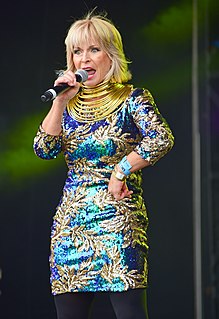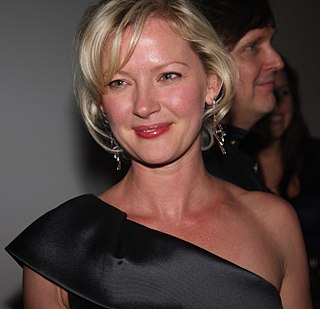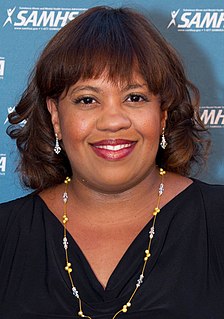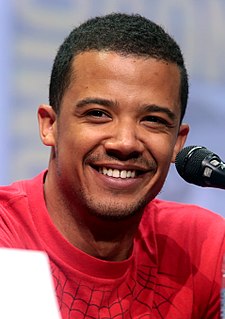A Quote by Toyah Willcox
My mother is not a naturally happy person and is very complex. She won't allow any of us to touch her. Not even my father hugs her. And, as a family, we never kiss each other. Yet we do have a close relationship.
Related Quotes
Her [Eleanor Roosevelt] father was the love of her life. Her father always made her feel wanted, made her feel loved, where her mother made her feel, you know, unloved, judged harshly, never up to par. And she was her father's favorite, and her mother's unfavorite. So her father was the man that she went to for comfort in her imaginings.
The adolescent does not develop her identity and individuality by moving outside her family. She is not triggered by some magic unconscious dynamic whereby she rejects her family in favour of her peers or of a larger society.... She continues to develop in relation to her parents. Her mother continues to have more influence over her than either her father or her friends.
Then, there's the modern mother-in-law. In her mid 40s, she is the compact car of her breed: efficient, trim, attractive and in harmony with her times. She's pretty stiff competition for the plain young matron who's overweight and under-financed. If there is going to be friction in this relationship, it could start from envy and resentment in the younger woman. But Father Time is on her side, even if Mother Nature played her a dirty trick
I wanted a good relationship with my mother, and I realized I had a choice: Either I could spend all my time angry that she didn't give me the hugs I thought I needed, or I could understand that she hugs differently. It's not a spread-open-the-arms, 'come here' hug. She hugs by sheltering me from her worries.
But the actual touch of her lingered, inside his heart. That remained. In all the years of his life ahead, the long years without her, with never seeing her or hearing from her or knowing anything about her, if she was alive or happy or dead or what, that touch stayed locked within him, sealed in himself, and never went away. That one touch of her hand.
I mean, her father was an alcoholic, and her mother was the suffering wife of a man who she could never predict what he would do, where he would be, who he would be. And it's sort of interesting because Eleanor Roosevelt never writes about her mother's agony. She only writes about her father's agony. But her whole life is dedicated to making it better for people in the kind of need and pain and anguish that her mother was in.
My mother was the kind of person who was very much part of her tribe and very much a satellite of her tribe. She was the girl who left her family at the age of 17 and went to Washington. My mother was orphaned at three and then was brought up by my aunt Goldie. So, yes she belonged, but there was a part of her that didn't.
Yet losing him seemed unbearable. He was the one she loved, the one she would always love, and as he leaned in to kiss her, she gave herself over to him. While he held her close, she ran her hands over his shoulders and back, feeling the strength in his arms. She knew he’d wanted more in their relationship than she’d been willing to offer, but here and now, she suddenly knew she had no other choice. There was only this moment, and it was theirs.
One thing I did have under my belt was, my mother lost her mother when she was 11. She mourned her mother her whole life and made my grandmother seem present even though I never met her. I couldn't imagine how my mom could go on but she did, she took care of us, she worked two jobs and had four children. She was such a good example of how to conduct oneself in a time of grief. When I lost my husband, I tried to model myself as much as I could on her.
Her kitsch was the image of home, all peace, quiet, and harmony, and ruled by a loving mother and a wise father. It was an image that took shape in her after the death of her parents. The less her life resembled the sweetest of dreams, the more sensitive she was to its magic, and more than once she shed tears when the ungrateful daughter in a sentimental film embraced the neglected father as the windows of the happy family's house shone out into the dying day.


































